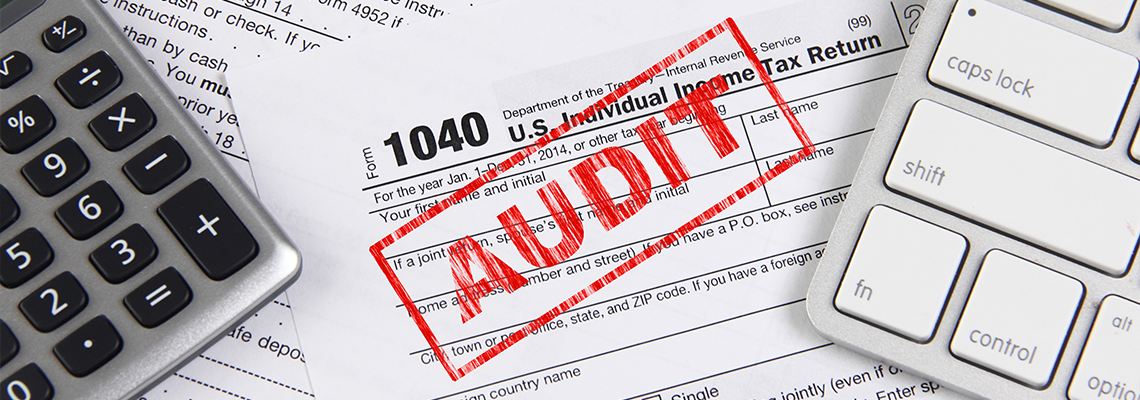Get Started Now

Red Flags That Can Lead to a Tax Audit
Tax audits can be an intimidating prospect for any taxpayer. The idea of the IRS or other tax authorities scrutinizing your financial records is enough to make anyone uneasy. However, understanding the red flags that can lead to a tax audit can help you avoid this stressful situation.
At The Farano Law Group APC, we're committed to helping taxpayers in Orange County, Riverside County, and Los Angeles County understand the nuances of tax law and reduce the risk of audits.
Our goal is to equip you with the knowledge and resources needed to stay compliant with tax laws and avoid unnecessary scrutiny. In this post, we will delve into the common triggers that can attract the attention of tax authorities, provide practical tips on how to minimize the likelihood of an audit, and outline the steps to take if you do receive an audit notice.
What Can Trigger a Tax Audit?
Tax audits are often the result of specific red flags that catch the eye of tax authorities. Understanding these red flags can help you take proactive steps to avoid them.
Significant Changes in Income or Expenses
One of the most common triggers for a tax audit is a sudden and significant change in your income or expenses. For instance, if your income dramatically increases or decreases from one year to the next, it may raise questions. Similarly, if your reported expenses are unusually high compared to your income, this discrepancy might prompt an audit.
High Deductions Compared to Income
While it's important to claim all the deductions you're entitled to, excessively high deductions in relation to your income can be a red flag. This is particularly true for deductions related to charitable contributions, business expenses, and home office use. If these deductions seem disproportionate to your reported income, it could lead to further scrutiny.
Neglecting to Report Additional Income Sources
Failing to report all your sources of income is another common trigger for a tax audit. This includes side jobs, freelance work, rental income, and investment gains. The IRS receives copies of the same income statements that you do, such as W-2s and 1099s. If the income you report doesn't match the information the IRS has, it can result in an audit.
Errors in Tax Filings
Mistakes on your tax return, whether intentional or not, can also lead to an audit. Common errors include incorrect Social Security numbers, misspelled names, and math mistakes. These errors can make it appear as though you're trying to deceive the tax authorities, even if it was an honest mistake.
How to Avoid a Tax Audit
While there's no surefire way to avoid a tax audit, there are several steps you can take to minimize the risk.
Maintaining Accurate Records and Receipts
One of the best ways to avoid a tax audit is to keep thorough and accurate records of your income and expenses. This includes maintaining receipts, invoices, bank statements, and other documentation that supports the information on your tax return. Organized records not only make it easier to file your taxes accurately but also provide a solid defense if you're ever audited.
Filing Taxes on Time and Correctly
Timeliness and accuracy are crucial when it comes to filing your taxes. Ensure that you file your tax return by the deadline and double-check your information for errors. Using tax preparation software or hiring a professional can help reduce the chances of mistakes.
Seeking Professional Tax Advice When Needed
If your financial situation is complex or if you're unsure about certain deductions and credits, it's wise to seek professional tax advice. A qualified tax attorney or accountant can help you through the intricacies of the tax code and ensure that your return is both accurate and compliant with all applicable laws.
What to Do if You're Audited
Receiving an audit notice can be stressful, but knowing what steps to take can help you manage the process more effectively.
Gathering Requested Documents
The first step is to gather all the documents and records requested by the tax authorities. This may include income statements, receipts, invoices, bank statements, and other relevant documentation. Being organized and thorough can make the audit process smoother.
Understanding Your Rights During an Audit
It's important to understand your rights during a tax audit. You have the right to know why you're being audited, the right to representation, and the right to appeal any decisions made by the tax authorities. Familiarizing yourself with these rights can help you conquer the audit process more confidently.
Seeking Professional Help With the Process
Hiring a professional to assist you during an audit can be invaluable. At The Farano Law Group APC, we have extensive experience representing clients in tax audits. We can help you prepare for the audit, represent you during the process, and work to resolve any issues that arise.
Retain Trusted Legal Counsel Today
Understanding the red flags that can lead to a tax audit and taking proactive steps to avoid them is essential for any taxpayer. By maintaining accurate records, filing your taxes on time and correctly, and seeking professional advice when needed, you can significantly reduce the risk of an audit.
If you do receive an audit notice, remember that you don't have to face it alone. At The Farano Law Group APC, our lawyer is here to help you every step of the way. We encourage you to stay informed and proactive in your tax planning and to reach out to us if you need assistance. Our commitment is to provide you with the support and guidance needed to approach tax law.
For more information or to schedule a consultation, please contact us today. Let us help you achieve peace of mind and ensure your tax matters are handled with the utmost care and professionalism.
